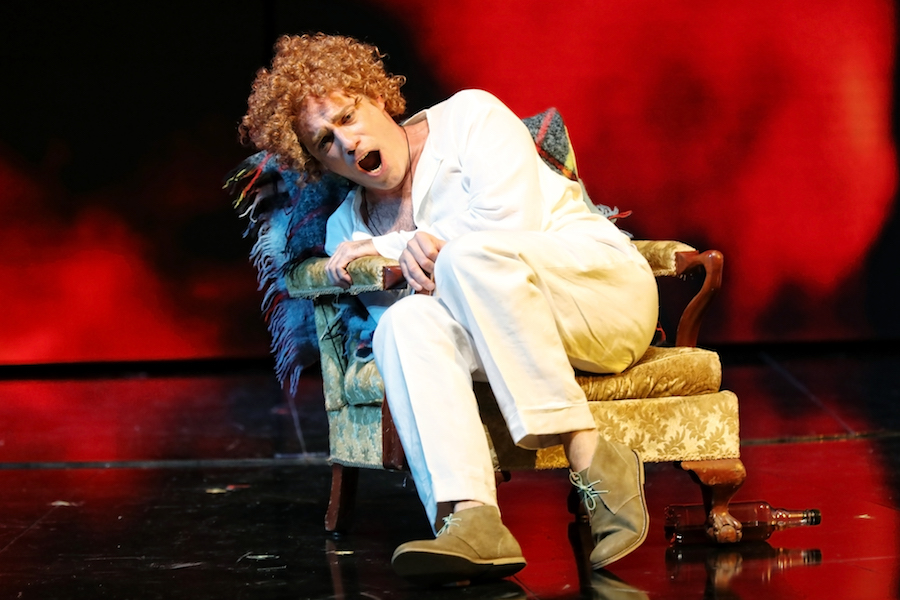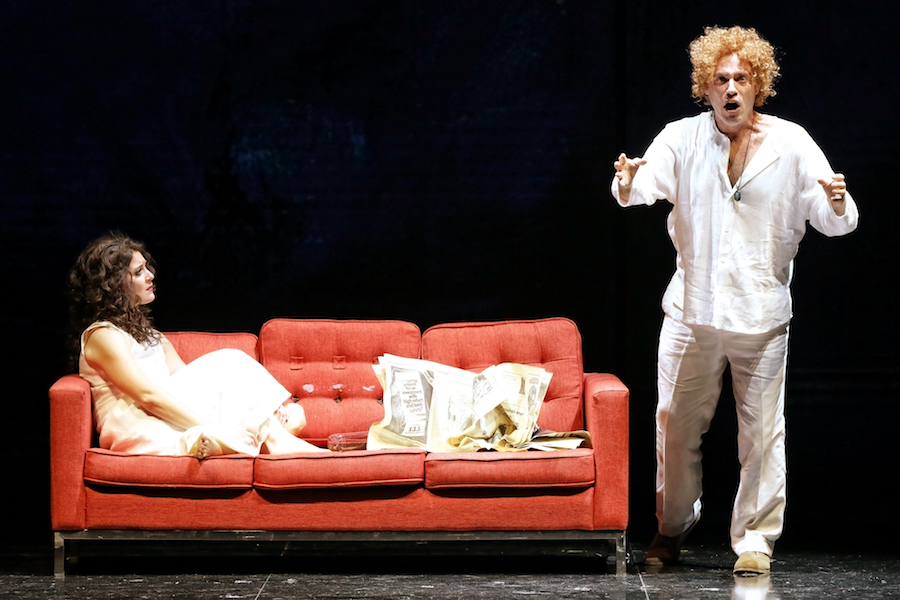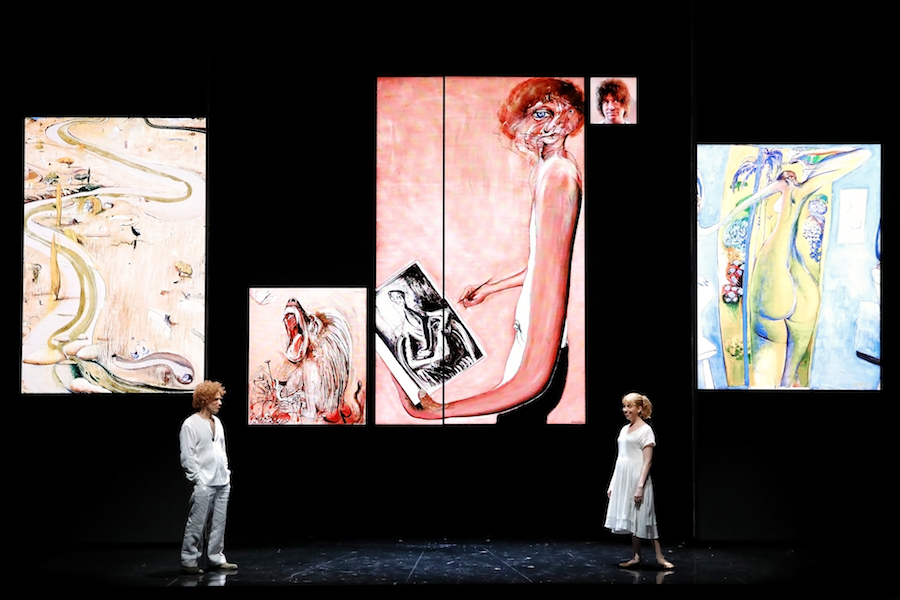Brett Whiteley, the enfant terrible of Australian art, could have little idea that not three decades after his death, he’d wind up being the subject of an opera. But big, splashy personalities such as his have always been catnip to storytellers, and so it was that Whiteley received its much-anticipated premiere on Monday night.
 Leigh Melrose in Opera Australia’s Whiteley. Photo © Prudence Upton
Leigh Melrose in Opera Australia’s Whiteley. Photo © Prudence Upton
As with any biographical work, the hope for Whiteley was that its creators – composer Elena Kats-Chernin and librettist Justin Fleming – would transform their subject into effective theatre. This task has largely eluded them, with the libretto a particular weakness. Given its narrative importance, surprisingly little time is spent establishing Brett and Wendy’s relationship: we don’t really feel the heady, all-consuming passion of the early days, nor register as we should the deeper companionship that develops between them. The complexities of their relationship, shaped by infidelity, substance abuse and the passage of time, are largely flattened out, and so too are the characters. We get little insight into them as individuals, with Brett’s creative zeal only wanly explored, and Wendy’s interior life neglected.
Although an episodic opera isn’t a problem in and of itself, it proves problematic when the selection of events feels random and disconnected, as it does here. Though effectively scored and staged, the scene concerned with the Christie murders has no pay-off in regard to overall narrative or character building. It’s ultimately a refuge in dramatic distraction, something that dogs Whiteley from beginning to end.
 Julie Lea Goodwin and Melrose in Opera Australia’s Whiteley. Photo © Prudence Upton
Julie Lea Goodwin and Melrose in Opera Australia’s Whiteley. Photo © Prudence Upton
More fruitful storylines – like Brett and Wendy’s relationship troubles, their divergent paths to recovery, and the death of their friend Joel Elenberg – are more or less glossed over. While it’s clear that the creative team wanted to avoid the sensational, their oblique, rather apologetic approach to some of the more tragic elements of Brett’s story doesn’t exactly make for compelling theatre. The handling of Elenberg’s death is a case in point: though undeniably moving in the moment, it has no lasting emotional impact on the audience, who aren’t shown why he matters so much to Brett.
Ultimately, why anybody should feel invested in these characters isn’t satisfactorily established, and one suspects this is because the creators themselves haven’t got a strong enough handle on who their subject is. Brett remains a vague presence onstage, personality traits rendered in the broadest of brushstrokes – the only true moment of reflection he’s given comes too late in the opera, when one wishes there were much more of these moments throughout. What’s more, the tone of the work feels uncertain at times, underpinned by an earnestness that feels worlds away from the wit and irreverence of the artist himself.
However, there are riches to be found in Kats-Chernin’s score, colourful and propulsive and confidently realised by Tahu Matheson and the Opera Australia Orchestra. She manages bustling cityscapes and chattering choruses just as well as moments of profound quiet, and differentiates well the many locations the Whiteleys find themselves in. But too often it feels in thrall to the libretto, and there are few moments when the drama feels properly driven by the music, a real shame.
 Melrose and Kate Amos in Opera Australia’s Whiteley. Photo © Prudence Upton
Melrose and Kate Amos in Opera Australia’s Whiteley. Photo © Prudence Upton
David Freeman’s production doesn’t do much to elevate the story either, and some scene transitions on opening night felt clumsy. While Whiteley’s artworks definitely looked good on the LED screens, they’re still not being used with a great deal of imagination.
All things considered, the cast acquit themselves well, beginning with Leigh Melrose as Brett. His powerful, wide-ranging baritone meets all of the challenges Kats-Chernin throws his way, and he’s a strong stage presence that makes the most of what he’s been given. Julie Lea Goodwin is equally committed as Wendy, singing with crystalline beauty and impressive diction. Kate Amos’ Arkie showed ample resolve as their steely daughter, wielding an instrument of purity and warmth, while Natasha Green as the younger Arkie provided an effective portrait of a child with a burgeoning awareness of familial discontent. Dominica Matthews made for a sharp, lively Beryl Whiteley, making you wish she had a greater role in the opera given how close mother and son were in reality. A number of cameo roles were well filled by OA regulars, especially Richard Anderson’s Joel Elenberg and Nicholas Jones’ Michael Driscoll.
There’s ample talent on display here, but Whiteley ultimately needs more work to be an effective piece of theatre.
Opera Australia’s Whiteley is at the Sydney Opera House until July 30












Comments
Log in to join the conversation.